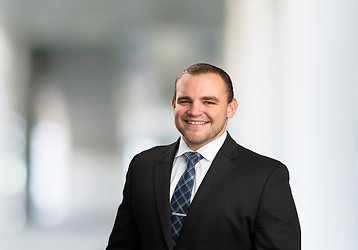Voting on Recreational Marijuana? What you need to know about Proposal 1
On Tuesday, November 6th, 2018, Michigan voters will decide whether to legalize recreational marijuana. If approved, Proposal 1 will brand Michigan the first state in the Midwest to legalize the possession and use of recreational marijuana for adults. Passage of Proposal 1 would have a significant impact on Michigan’s economy, and undoubtedly draw in consumers from Ohio, Indiana and other states in the region. In 2017, Colorado generated $1.3 billion in revenue from marijuana sales. With Michigan’s population twice the size of Colorado, one can imagine the possibilities.
Proposal 18-1 (“Proposal 1” or the “Act”) would[1]:
- Permit individuals 21 years of age or older to purchase, possess and use marijuana, including marijuana-infused edibles, and grow up to 12 marijuana plants for personal consumption
- Limit marijuana stored at residences to 10 ounces and require 2.5 ounces or more to be stored in locked containers
- Create a state licensing system for marijuana businesses and allow municipalities to restrict them. Municipalities can ban or limit marijuana facilities in their jurisdictions.
- Licenses include: retail, safety compliance, transporters, processors, microbusinesses, and growers (grower licenses permit the growth of 100, 500, or 2,000 plants)
- Permit retail sales of marijuana and marijuana-infused edibles subject to a 10% tax (in addition to the 6% sales tax) dedicated to implementation costs, clinical trials, schools, roads, and municipalities where marijuana businesses are located
- Change several current violations from crimes to civil infractions
The State Department of Licensing and Regulatory Affairs (“LARA”) must begin accepting applications for marijuana establishments within 12 months after the effective date of the Act. If LARA misses this deadline, applicants may submit applications directly to a municipality which has opted into the Act. An approved municipal license has the same force and effect as a state license.[2] This differs from the Medical Marihuana Facilities Licensing Act (“MMFLA”) which requires dual-licensing by the state and the municipality.
Those licensed under the MMFLA will have a head start on the competition. For the first two years after LARA begins to receive applications under the Act, only those already licensed under the MMFLA may apply for a marijuana retailer, marijuana processor, class B marijuana grower, class C marijuana grower, or a marijuana secure transporter license. Marijuana microbusinesses and Class A growers must be residents of Michigan to apply for the first two years. Anyone may apply for a safety compliance facility license.[3]
If you have any questions about Proposal 1 or your business model includes a recreational marijuana facility, you should consider seeking approval immediately in order to take advantage of the edge that the Act provides to those licensed under the MMFLA. Contact a member of the Butzel Long Cannabis Specialty Team for your licensing needs.
Shanika Owens
313.983.6908
owens@butzel.com
Tommy Nafso
313.983.6924
nafso@butzel.com
Mitch Zajac
313.225.7059
zajac@butzel.com
Jonathan Kirkland
248.258.1422
kirkland@butzel.com
[1] https://www.michigan.gov/documents/sos/Official_Ballot_Wording_Prop_18-1_632051_7.pdf
[2] §16.
[3] §9.3(d)(6). (The state department reserves the right to open applications to all applicants if it deems it necessary to minimize the illegal market for marijuana in the state, to meet the demand for marijuana, or to provide reasonable access to marijuana in rural areas.)













